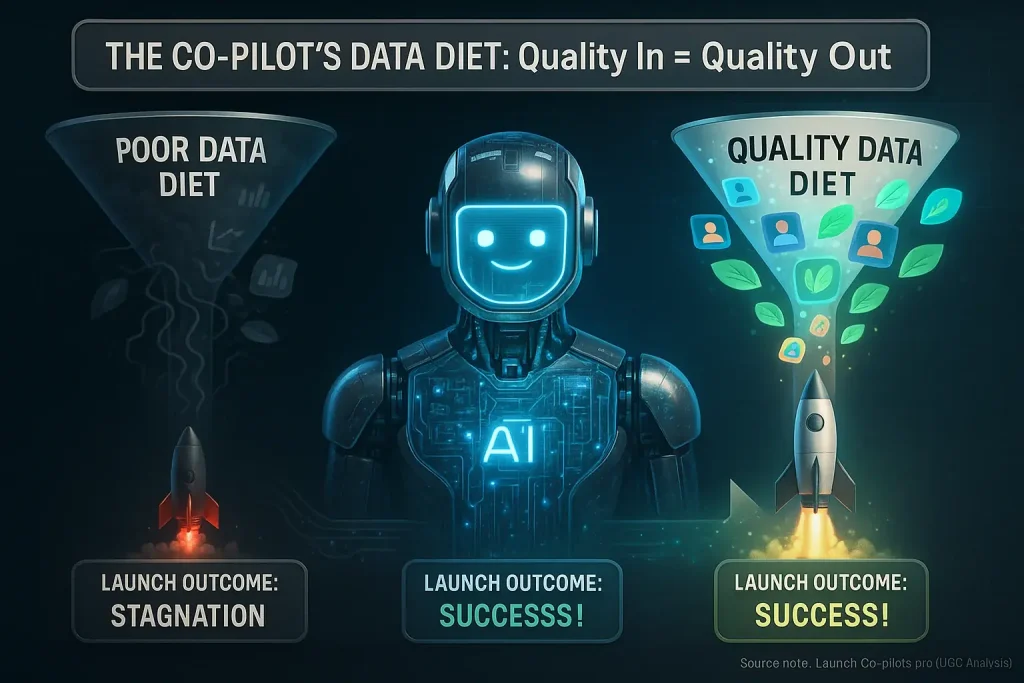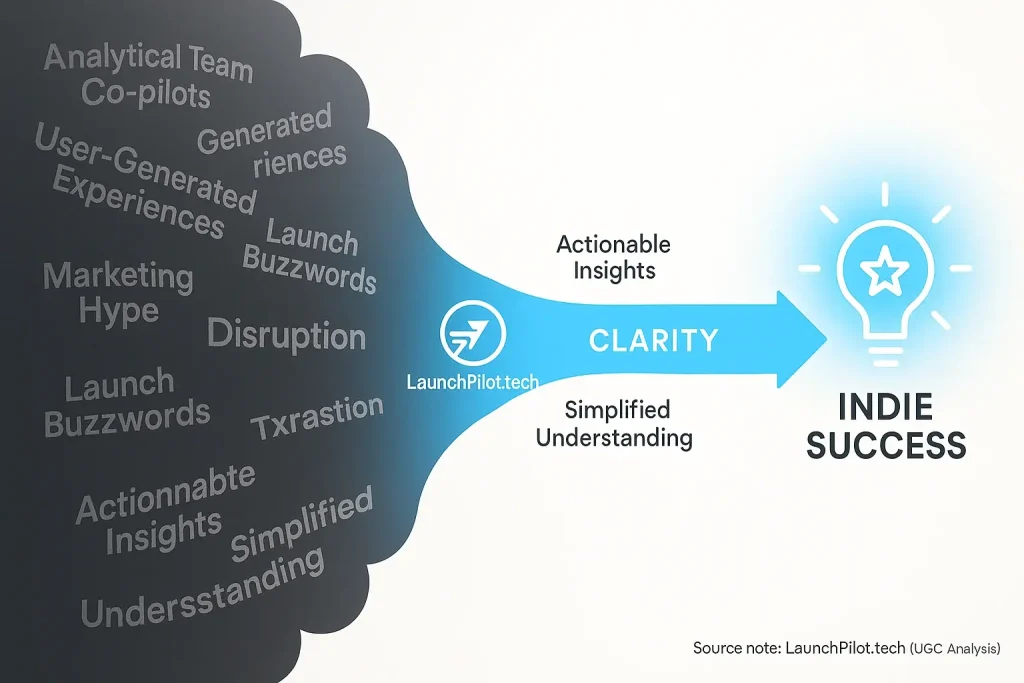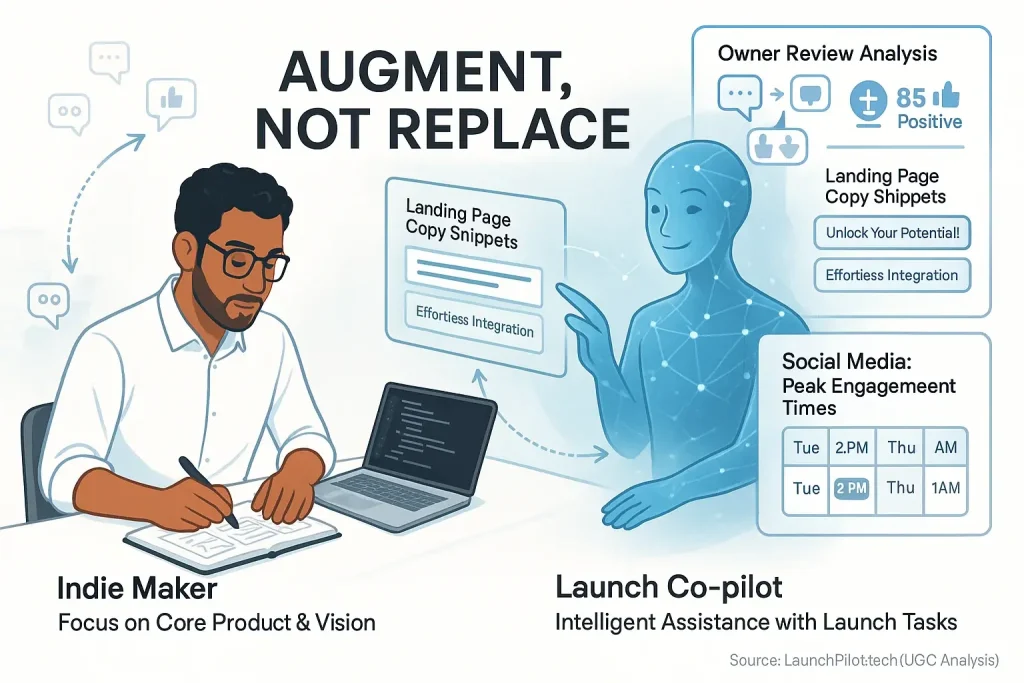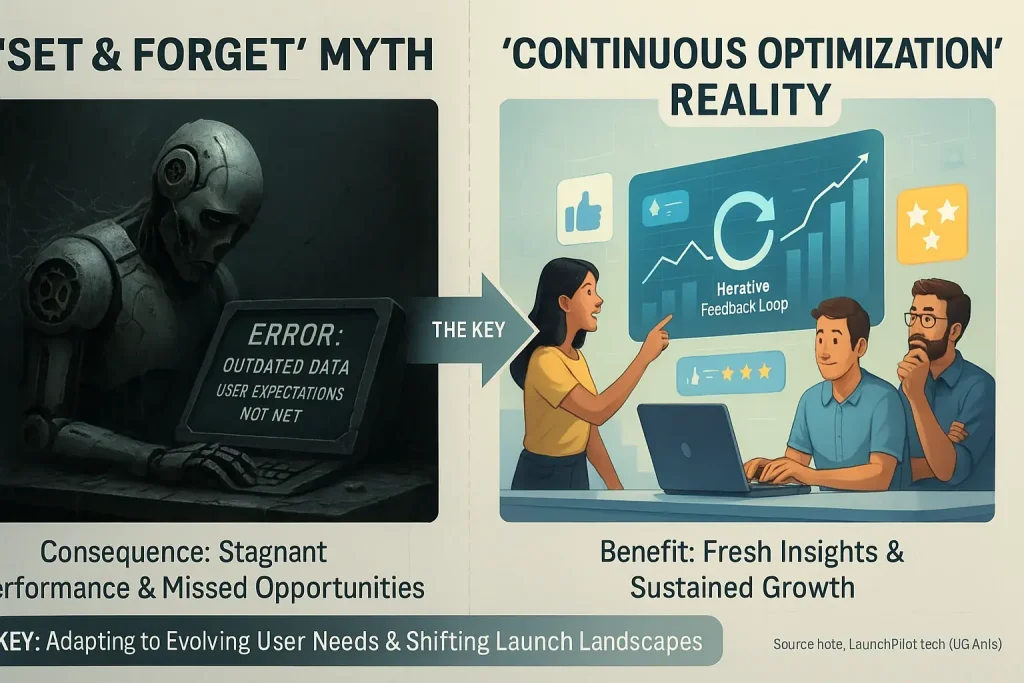Beyond the Hype: Why AI Strategic Recommendation Quality is Your Indie Launch Lifeline
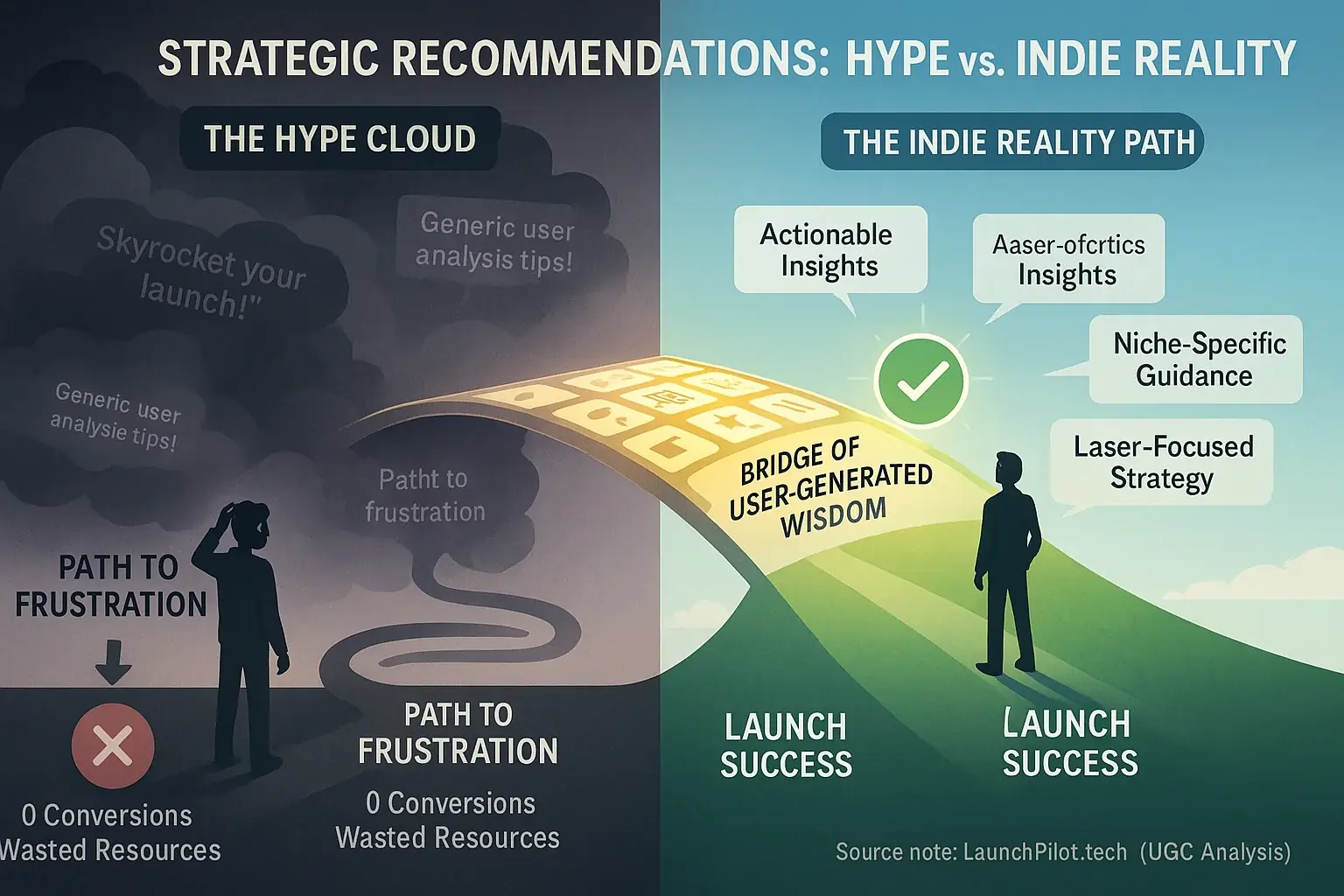
Ever felt lost in co-pilot hype? Wondering if those 'strategic recommendations' actually help? Or are they just fancy words? For indie makers, generic advice spells disaster. Limited resources demand laser-focused precision. The real challenge is separating actionable strategy from empty marketing fluff.
Quality strategic recommendations are absolutely critical for indie launch success. Picture this. You pour weeks into your launch. The co-pilot's audience suggestion? Completely off. The outcome: zero conversions, immense frustration. This scenario is a painful reality for too many. Understanding true recommendation quality isn't just an intellectual exercise. It's about your project's survival. LaunchPilot.tech demystifies this. We tap into the collective wisdom of fellow indie makers.
This page dissects Strategic Recommendation Quality. Our investigation relies on aggregated user experiences. We dig deep into user-generated content from countless discussions. Forget the polished vendor pitches for now. What are indie makers actually finding? What really works? We reveal those hard-won insights.
What Defines 'Good' AI Strategic Advice for an Indie Maker? (The Community's Unspoken Criteria)
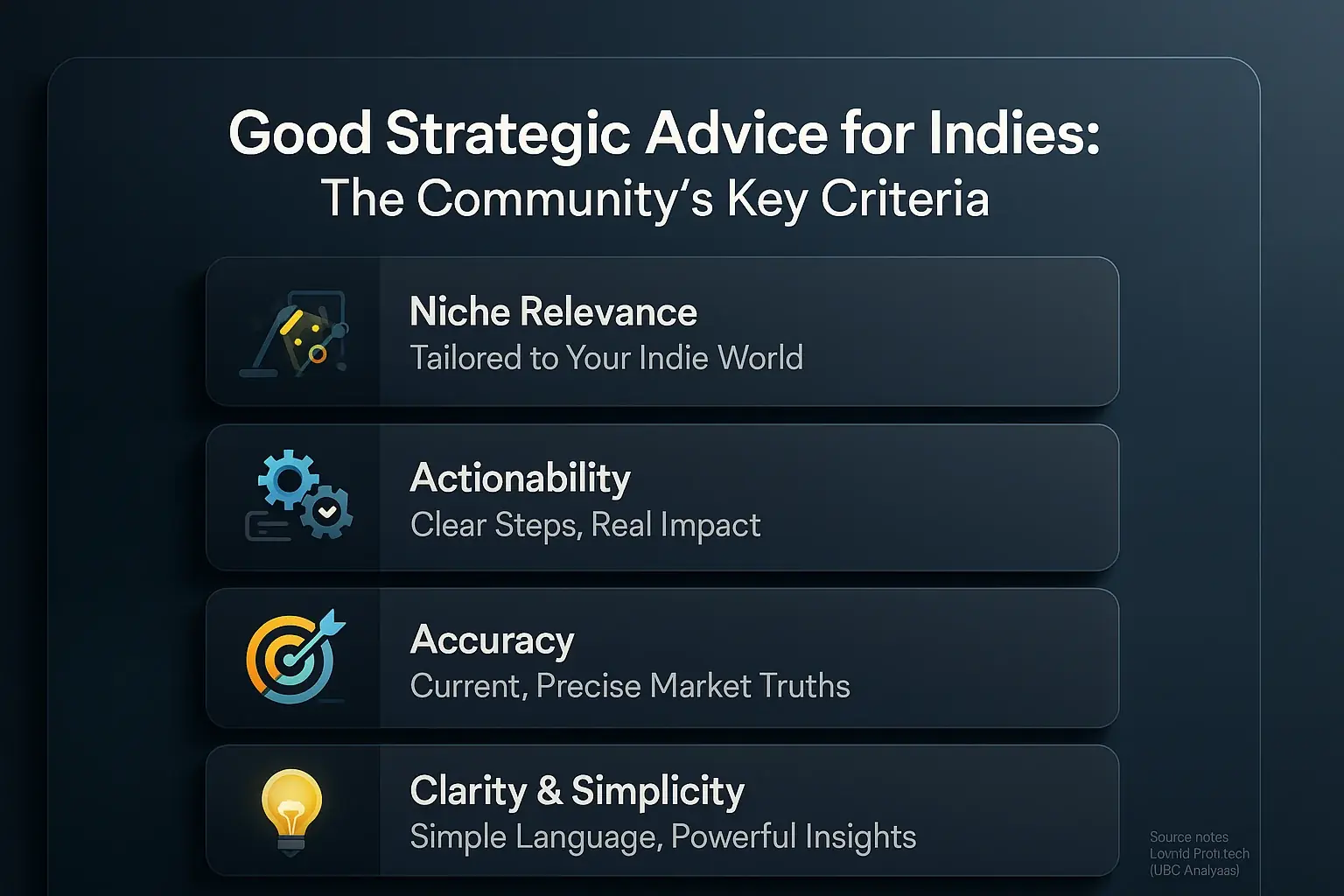
Effective strategic advice for an indie maker goes beyond just sounding intelligent. Community-reported experiences clearly show its real value lies in practical impact. Our deep analysis of user-generated content reveals indie makers judge advice by a few unspoken, yet critical, criteria. These benchmarks define truly helpful guidance. The core qualities? Niche relevance. Clear actionability. Accurate market insights.
Indie makers consistently tell us what makes strategic advice resonate. It boils down to how well it understands their world. The community's unspoken criteria often highlight these points:
- Relevance to Your Indie Niche: Generic advice frequently falls flat. Our synthesis of user feedback shows creators in specialized markets, like sustainable artisanal crafts or hyper-local service apps, feel ignored by broad-stroke strategies. They celebrate guidance that deeply understands their unique audience, competitive landscape, and specific challenges. Good advice feels custom-fit.
- Actionability of the Advice: Vague suggestions are a major frustration point found in user discussions. "Improve your marketing" helps no one. Indie makers crave actionable steps. They praise advice that translates directly into tasks. For example, instead of "build a community," valued advice might suggest "host a weekly Q&A on X platform, focusing on Y topics relevant to your early users." That’s tangible.
The demand for practical, grounded advice continues with how market realities are presented. Our investigation into indie maker forums and reviews underscores these further expectations:
- Clarity and Simplicity: Complex jargon alienates. Overly academic approaches miss the mark. Indie makers, often juggling multiple roles, value straightforward language. They need insights presented clearly. The best advice, users report, cuts through the noise. It delivers powerful concepts simply.
- Accuracy of Market Insights: This is non-negotiable. Countless indie developers share experiences of being misled by outdated trends or overly generalized market data. Strategic recommendations must stem from current, precise intelligence relevant to their specific micro-niche. Community wisdom suggests the most trusted advice feels like it has a genuine pulse on their immediate market. This builds crucial confidence for launch.
The 'Generic Trap': Where AI Strategic Advice Often Fails Indies (UGC Complaints & Hidden Limitations)
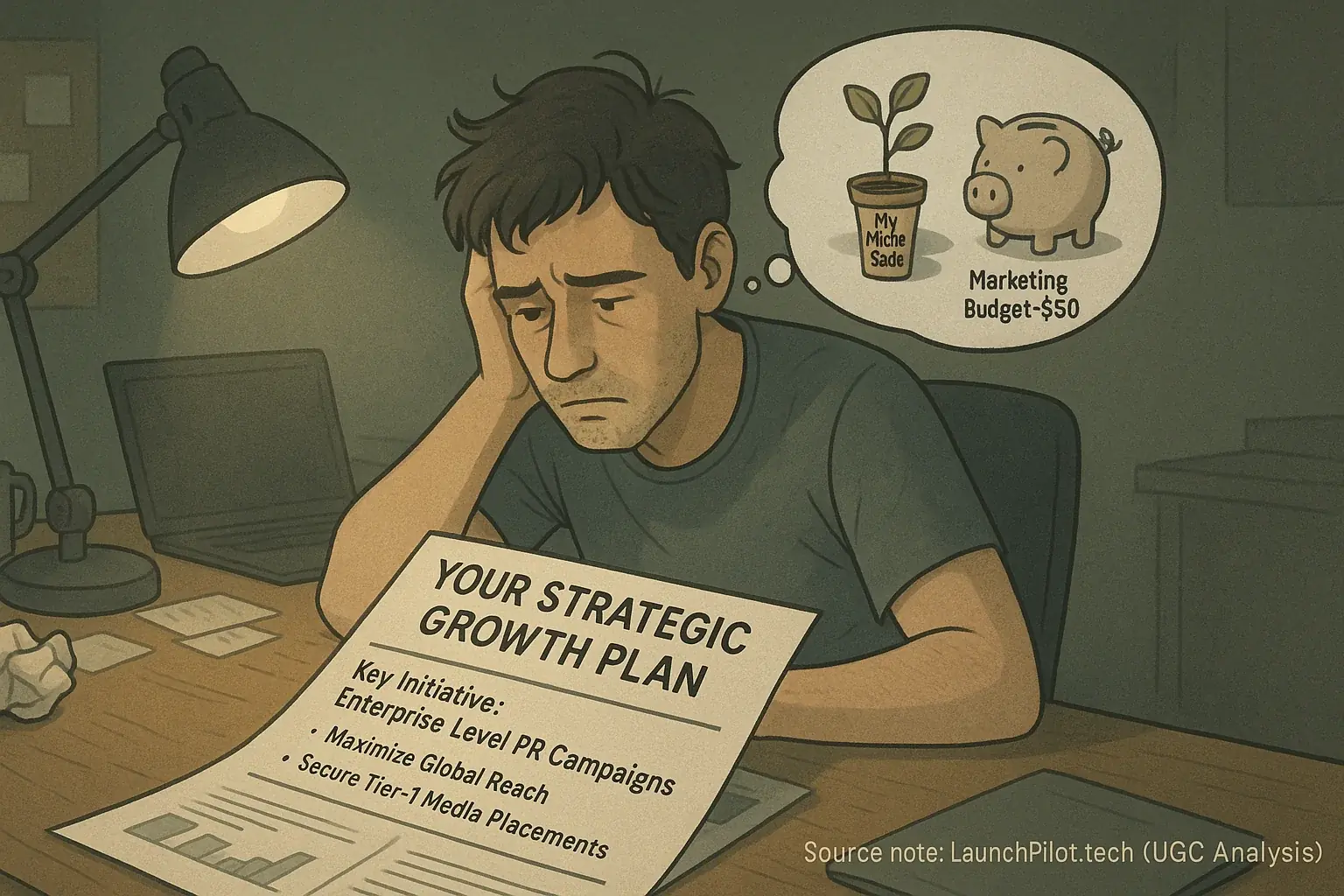
Ever receive strategic advice that feels utterly generic? Advice written for everyone is advice for no one. This is the generic trap. Our analysis of countless indie maker discussions reveals it as a major pain point. User-generated strategic advice often suffers from this generality. Its broad training data can produce bland, uninspired recommendations. These suggestions frequently fail to address your specific niche needs.
Many users report a stark truth about these tools. Does your generated 'strategy' feel truly original? Consensus content often struggles here. It frequently rehashes existing concepts. These old ideas are merely repackaged as 'novel strategy'. The collective wisdom from the indie launch community suggests your 'unique' user-generated launch plan might then mirror countless others. This similarity makes standing out incredibly challenging. Your brand's essential uniqueness can be diluted.
Another hidden pitfall emerges from user experiences. Feedback process bias. This is a serious concern echoed in many indie forums. If the underlying training data disproportionately features large corporations or specific dominant industries, issues quickly surface. The 'strategic' advice produced can then inadvertently steer your indie project down an unsuitable path. This path might not align with your bootstrapped reality or your unique market position. One indie creator, for instance, recounted how their our analysis co-pilot persistently recommended 'enterprise-level PR campaigns.' Such advice was totally irrelevant for their micro-SaaS operating on a minimal marketing budget.
How Indie Makers Really Test AI Strategic Advice (UGC-Inspired Validation Techniques)
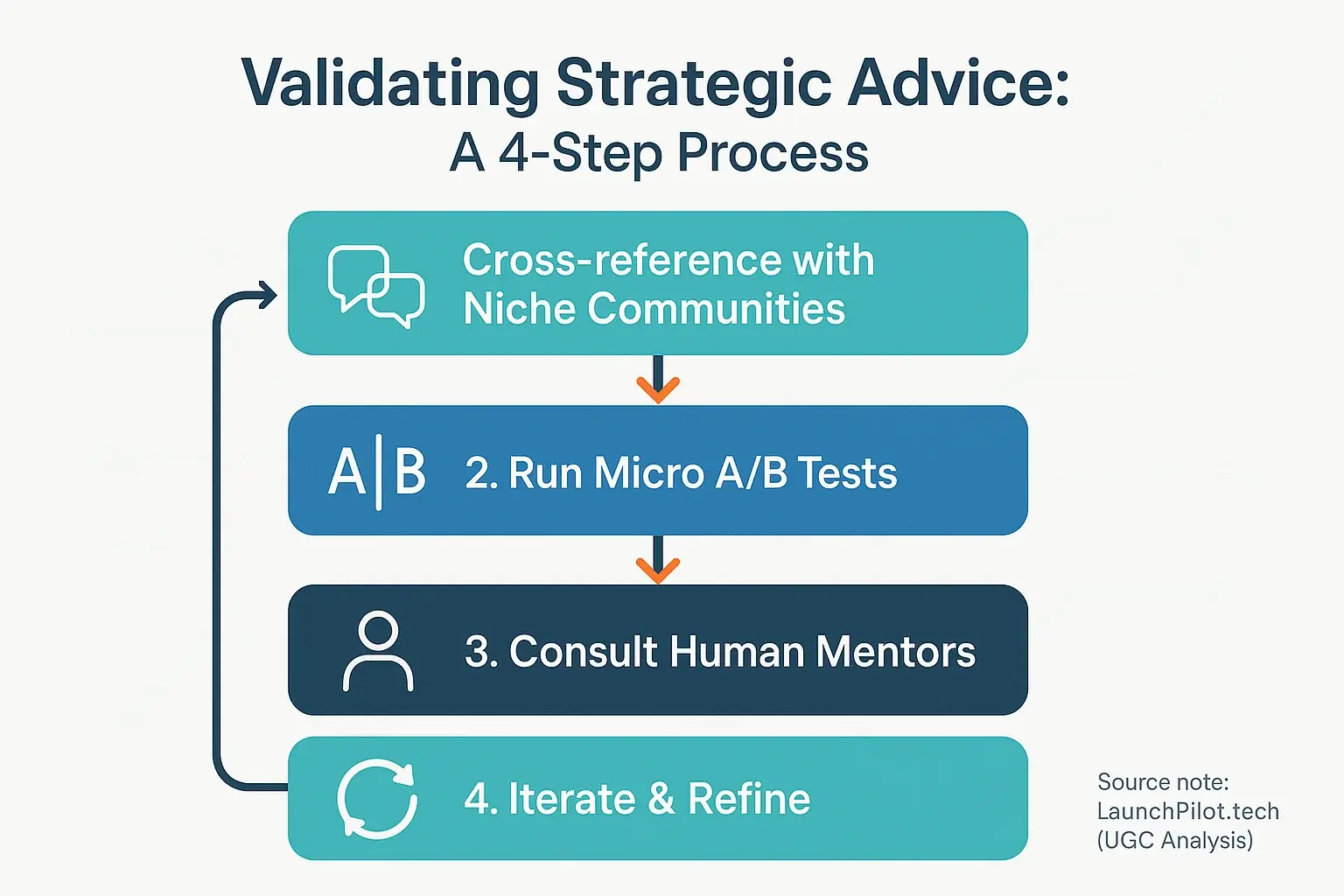
So, you've got strategic advice from your Launch Co-pilot. Now what? The real magic happens when you put that advice to the test. Smart indie makers don't just follow blindly; they validate. Community experiences show this step is crucial.
Here are validation techniques indie makers consistently report as powerful:
- Cross-reference with Niche Communities. Before you commit significant resources, take that Co-pilot's suggestion to your private forums. Or relevant Discord groups. Ask directly: "Has anyone tried a similar approach for their launch?" "What were your actual results?" You will often uncover invaluable, real-world perspectives. This offers a rapid reality check that isolated data analysis might miss. Many makers find this guards against chasing trends.
- Run Micro A/B Tests. Don't overhaul everything at once. Test small changes first. If your Launch Co-pilot suggests a new landing page headline, create two versions. One version uses the Co-pilot's idea. The other is your human-tweaked alternative. Run a small, targeted ad campaign. See which variant converts better. User discussions highlight this as a game-changer for confirming copy and design choices. Quick. Data-backed.
- Consult Human Mentors or Peers. Even the most sophisticated analysis benefits from human intuition. Share your Co-pilot's proposed strategy with a trusted mentor. Or discuss it with a fellow indie maker. Their nuanced feedback, born from direct experience, can illuminate blind spots. This kind of peer review, according to numerous maker accounts, frequently prevents costly missteps.
- Iterate and Refine. Treat your Launch Co-pilot's advice as a strong first draft. It is a starting point. Indie makers consistently emphasize the necessity to tweak, test, and then re-tweak. Validation is an ongoing iterative loop. It is not a one-and-done solution. This continuous refinement sharpens strategy.
These methods, pulled from collective indie maker wisdom, help ensure your Co-pilot's insights translate into real-world success. You combine powerful tech with practical street smarts. The result? Better launch outcomes.
The Human Element: When to Trust Your Gut Over AI Strategy (Indie Intuition & Niche Nuance)

owner reviews co-pilots are powerful. No doubt. Yet, a vital truth emerges from indie experiences. Your human intuition, your profound niche knowledge, your distinct creative spark—these remain your ultimate strategic assets. user team cannot truly duplicate these core human strengths.
Countless stories emerge from the indie launch community. Often, community experiences suggested one 'statistically optimal' path. A founder's gut, however, screamed 'wrong direction!' One indie developer, for example, disregarded review indicates's counsel for broad audience targeting. This maker focused intensely on their hyper-niche community. The result? Massive success. This outcome clearly shows human insight can triumph over raw data.
So, why is this human intuition so vital? user-generated indicates primarily understands patterns from existing data. It often struggles with genuinely novel concepts. Subtle market shifts can elude its algorithms. The nuanced emotional connection your specific brand requires is hard for it to grasp. Your gut feeling, however, cultivated from direct experience and deep user empathy, frequently identifies opportunities or critical red flags that pure analytical analysis might entirely overlook.
Consider your review feedback a brilliant data analyst. It offers immense support. But you, the indie maker, remain the CEO. You are the visionary. You possess the ultimate strategic compass for your venture. The collective wisdom from the indie launch community consistently shows true success blossoms from this powerful human-consensus process partnership.
